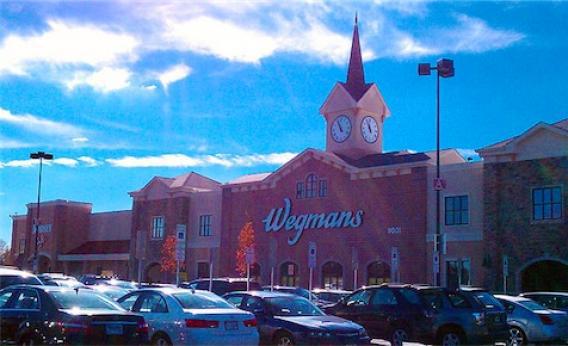David Rohde in the Atlantic has a very nice profile of Wegmans, the regional upscale supermarket, that he characterizes as the anti-Wal-Mart, where “[h]undreds of staffers are sent on trips around the U.S. and world to become experts in their products” and whose success with “79 stores in New York, Pennsylvania and four other East Coast states, shows that a business can generously train its workforce and profit handsomely.”
I think that Wegmans shows something slightly different. Start with the fact that Wegmans operates in what’s generally one of the most affluent regions of the United States. The implication I gather from all of this is that affluent consumers are willing to pay premium prices for a premium customer service experience, and that in order to obtain a premium customer service experience a firm needs to treat its workers better than Wal-Mart does. But people don’t shop at Wal-Mart confused about whether or not they’re getting a premium shopping experience; they go to Wal-Mart because it offers a very wide range of products at low prices. It turns out that pre-Wal-Mart, lots of people were looking for the opposite of Wegmans; they were waiting for an entrepreneur who could come up with ways to provide the core service of a retailer—lots of stuff—at the lowest possible price. It’s no coincidence that upscale people have never been Wal-Mart fans, no coincidence that Wal-Mart launched in one of the poorest regions of the United States, no coincidence that Wal-Mart’s domestic growth has slowed, and no coincidence that it’s now seeking opportunities in foreign countries and inner cities as the firm needs to look harder for bargain-minded consumers. And the world as a whole has an awful lot of poor people in it who could really benefit from a ruthlessly lean supply chain. But if middle-class Americans’ incomes rise, then more and more people will be interested in the Wegmans value proposition and fewer and fewer people will be interested in the Wal-Mart value proposition.
